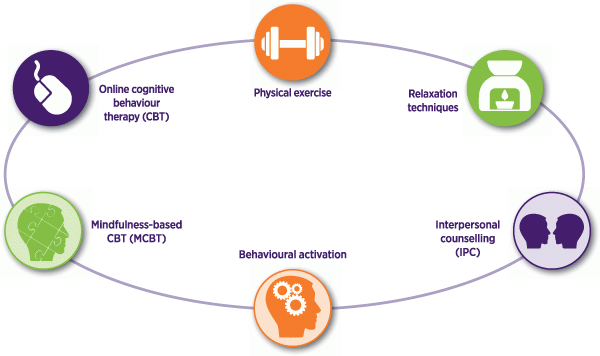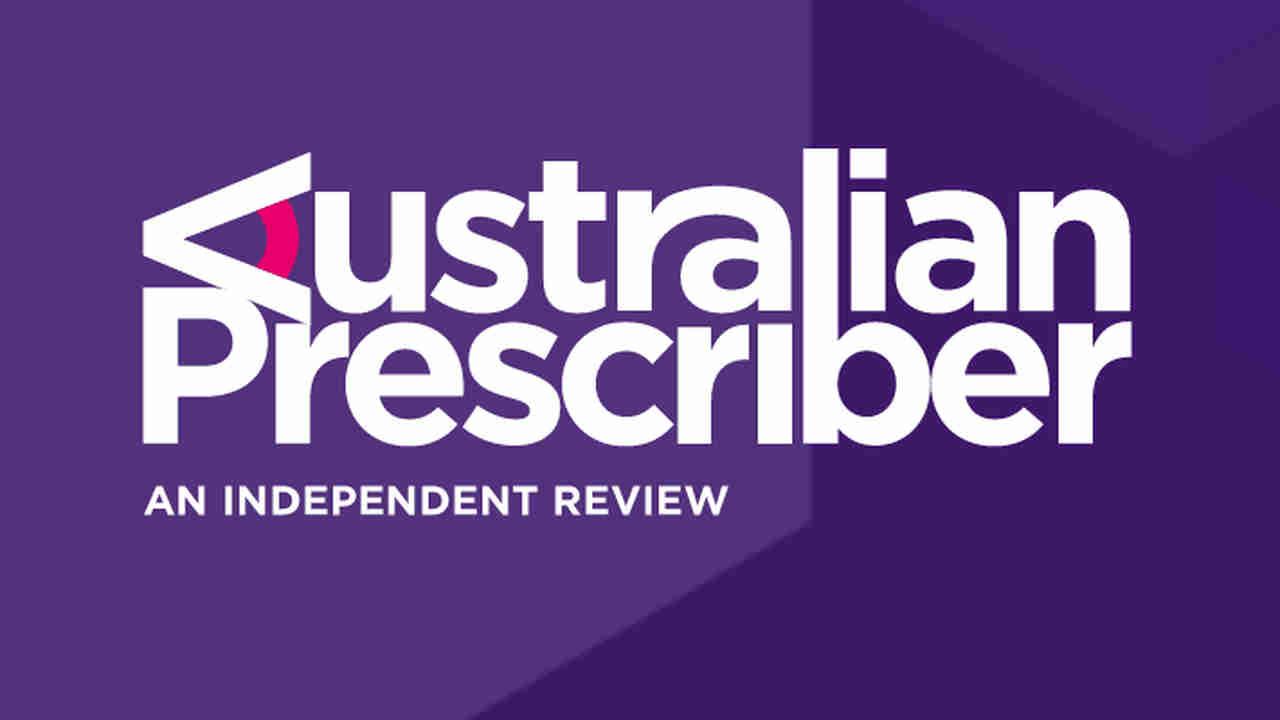Key points
- Promote and support non-pharmacological approaches, especially for mild and moderate depression.
- Discuss treatment options openly with patients (and carers), provide information and address any misconceptions.
- Take patient needs and preferences into account, as well as social and cultural factors, when making treatment choices
- Advise patients what to expect from antidepressant medicines and agree on an adequate trial period if starting treatment.
- Ask patients regularly about mood, function and adherence when monitoring treatment.
Mental health and young people

In 2022 NPS MedicineWise launched an education program that looked specifically at supporting the management of mental health in our young people.
Find out more here
MedicineInsight report (2021)
This new report utilising data from the MedicineInsight program highlights a trend of increasing recording of depression and anxiety in young people (<25 years), and a corresponding increase use of antidepressants with Australian general practices.
Read the report Epidemiology of mental health conditions and antidepressant use in people aged less than 25 years attending general practice
Medicinewise News: Exploring non-drug options in depression

Non-pharmacological options, such as cognitive behaviour therapy (CBT) and e-Mental health tools, are appropriate first-line treatments for mild depression. They are as effective as antidepressants in moderate depression.
Australian Prescriber: Switching and stopping antidepressants

Nicholas Keks, Judy Hope and Simone Keogh
Aust Prescr 2016;39:76-831 Jun 2016
Switching from one antidepressant to another is frequently indicated due to an inadequate treatment response or unacceptable adverse effects. All antidepressant switches must be carried out cautiously and under close observation.
Conservative switching strategies involve gradually tapering the first antidepressant followed by an adequate washout period before the new antidepressant is started. This can take a long time and include periods of no treatment with the risk of potentially life-threatening exacerbations of illness.
Clinical expertise is needed for more rapid or cross-taper switching as drug toxicity, including serotonin syndrome, may result from inappropriate co-administration of antidepressants. Some antidepressants must not be combined.
Antidepressants can cause withdrawal syndromes if discontinued abruptly after prolonged use. Relapse and exacerbation of depression can also occur. Gradual dose reduction over days to weeks reduces the risk and severity of complications.
Read the full article and download the Guidelines for switching poster
Evaluation: GP survey results for Managing depression program
We surveyed GPs who participated in the NPS MedicineWise Depression: re-examining the management options visiting program (delivered in 2016) to find out what they learned and whether they thought it was worthwhile.
Key survey findings:
- After the program there was in increase in GPs’ knowledge in relation to:
- - use of fluoxetine as a first-line choice to treat adolescents when an antidepressant is required (+15%)
- - use of venlafaxine, based on adverse effects (+8%).
- GPs who participated in the program showed improved confidence at selecting antidepressants that do not interact with any concurrent medicines that their patient is taking (+4%).
- The proportion of GPs who would frequently refer their patients to online mental health programs increased (+5%).
- Overall, after the program a greater proportion of GPs selected an SSRI rather than an SNRI for the first-line treatment of severe depression.
CPD options
Consolidate your knowledge about depression, brush up on current guidelines and practices and earn CPD points through our learning activities.
For GPs:
For students:
Clinical resources and tools
Guidelines
Therapeutic Guidelines
Psychotropic: Depression in adults. 2016.
Australian guidelines for the management of depression in adults. The main focus is on pharmacological treatment and also includes sections on psychological therapies and St John’s wort.
British Association for Psychopharmacology guidelines
Evidence-based guidelines for treating depressive disorders with antidepressants. Published by the British Association for Psychopharmacology in 2015.
Royal Australian College of General Practitioners
e-Mental health: A guide for GPs. 2015
e-Mental health interventions include instant messaging or video-based counselling services, consumer information portals, online support groups and more.
This guide provides:
- advice on using e-Mental health (although it is of a general nature, due to the absence of a significant body of evidence on how to use e-mental health resources in primary care)
- signposts for where to find important resources and further information.
It can be used across the care continuum. This includes prevention and early intervention, primary treatment, adjunctive treatment and maintenance.
Tools
The Black Dog Institute provides these resources for encouraging people with depression to exercise:
For your patients
A fact sheet to help your patients find out more about management options for depression.
Resource for health workers to use when discussing available treatments for depression and the place for antidepressants with Aboriginal and Torres Strait Islander people.
A fact sheet for Aboriginal and Torres Strait Islander people with information about what to expect when starting an antidepressant, the importance of taking it as prescribed and when to return to their clinic.
About depression medicines: what you need to know about your antidepressant
Date published : 30 July 2022
Social, emotional and cultural wellbeing resources for Aboriginal and Torres Strait Islander people are available online at WellMob.
Support groups and links
Getting together with other people who know what it’s like to go through depression, or care for someone with depression, can be very helpful. Support groups can be located through state-based mental health associations, The Black Dog Institute or GROW.
Suicide prevention and online support
General information about depression
- beyondblue
- The Black Dog Institute
- The Clinical Research Unit for Anxiety and Depression (CRUfAD)
- SANE Australia
- BluePages
- The Royal Australian & New Zealand College of Psychiatrists
- E-couch
- head to health
Postnatal and antenatal depression
For men
For kids
For teens
For over-65s
For people from culturally and linguistically diverse (CALD) communities
Online cognitive behavioural therapy (CBT)
Research summary
Psychotherapy
| Reference | Results / Recommendations |
|---|---|
Cuijpers P, Andersson G, Donker T, et al. Psychological treatment of depression: results of a series of meta-analyses. Nord J Psychiatry 2011;65:354-64 |
A series of meta-analyses of 243 studies examining psychotherapies for adult depression. Meta-analyses included comparisons between psychotherapy and:
Findings included:
|
Antidepressant discontinuation
| Reference | Results / Recommendations |
|---|---|
Shelton RC. Prim Care Companion J Clin Psychiatry 2001;3:168-74 |
Review of discontinuation of antidepressants and antidepressant discontinuation syndrome, including:
|

